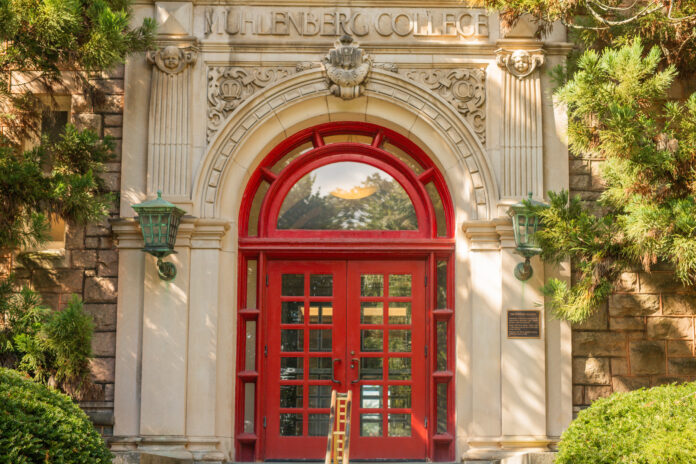Last week, Muhlenberg announced that they were awarding tenure to six professors: Ross Dardani, Ph.D., Jaqueline Antonovich, Ph.D., Emanuela Kucik, Ph.D., Casey James Miller, Ph.D., Ellen Rackas, MBA and CPA and Leticia Robles-Moreno, Ph.D.
While receiving tenure is a big accomplishment for faculty and important for the College, what exactly it means and what it entails is often a mystery to students. According to the Muhlenberg faculty handbook, “the awarding of tenure is the recognition of [professor’s] proven positive worth to the institution and the expression of faith in the long-term continuation of that worth.” In addition to being beneficial to the College in that it helps retain talented faculty, getting awarded tenure is also valuable to professors. Professors who are awarded tenure have job security that extends to retirement unless they engage in egregious misconduct.
Dardani of the Political Science Department shared that tenure is so important because it is “designed to allow you to pursue your teaching, and especially research, in any direction it may go, even if it may potentially go in a direction that is not all that popular or goes against a majority of public thinking… [tenure] gives you the academic freedom to pursue your teaching and research interests without [the] influence of outside forces.”
Antonovich added to that, saying, “For those not familiar with how tenure works in academia, it might come as a surprise that not getting tenure means you’re basically out of a job.”
Getting awarded tenure is not an easy task. There are three factors necessary for evaluating professors for tenure according to the faculty handbook: “teaching, scholarship and service to the college.” To evaluate teaching, professors who are on the tenure track are observed in class by colleagues and college administrators. Professors’ syllabi are also evaluated for how clearly they communicate the learning goals for the course. In evaluating scholarship, performances are observed by the College if the professor’s field is in the performing arts. Otherwise, written scholarship is evaluated based on the prestige of the publisher or journal, as well as the quality of the work published. If the scholarship is presented at a conference, the presentation is evaluated on the quality of the content, as well as the prestige of the conference at which it was presented. Lastly, service to the College is evaluated by attendance at College meetings, advising and mentoring students, leadership on committees, centers, departments and other similar roles.
Despite the difficult process of getting tenure, Muhlenberg has implemented a robust process for helping faculty successfully get tenure. All tenure-track faculty are given many opportunities to reflect and get meaningful feedback from colleagues to grow as teachers. One of the biggest ways this happens is through the third-year review, during which professors can hear from colleagues and administrators. This process provides professors with information both about their strengths, as well as the ways they can improve their tenure portfolios. This is crucial because it allows professors to adjust their teaching styles in a way that benefits the students, and it also helps them be prepared for their final tenure evaluations in their sixth year.
Discussing the tenure process, Rackas said, “Getting tenure is truly a six-year process. During that time, I learned a great deal about myself and the institution.”
Dardani agreed, saying, “I thought that the tenure process here was very transparent and offered so much opportunity to reflect at various points.”
Both Dardani and Rackas are excited to have tenure and are enthusiastic about the ways that it will help them be better professors. Rackas described how she is “very proud to have been awarded tenure. As a faculty member [who] switched careers late in my professional life, I feel a huge sense of accomplishment. I also hope that others see that you can switch gears at any time! Having tenure will allow me to pursue more research opportunities.”
Dardani echoed that idea, reflecting how “a lot of the research that I have been focusing on, it is fairly critical of the US, and having tenure definitely gives me a level of assurance that I am not going to be unjustly punished for potentially engaging in the research I have been pursuing, even it does focus on topics that are not popular.”
Miller shared both Rackas’ and Dardani’s sentiments, but he also noted that “getting tenure isn’t as much about how it benefits or helps an individual professor as much as what it means for them personally and professionally. Getting tenure is a huge personal and professional achievement, and is the result of decades of hard work, dedication and even sacrifice…[it] is a sign of recognition and respect by your peers.”
Kucik expanded on Miller’s comments, saying, “As a Black woman, this milestone has layers of meaning for me. We live in a country in which Black communities were forcibly kept out of many educational spaces for so long, and I am immensely grateful to my ancestors for fighting for a world in which I, and many others, could reach this moment…There is still far to go to make academia a fully equitable space, so I am determined to use the privilege of tenure to open doors and break down barriers for all who will come after me, just as those who came before me did for me.”
Muhlenberg’s commitment to tenure stands out as, according to Antonovich, “tenure is under threat nationwide, [where] many states have begun to weaken or completely eliminate the tenure system.” Miller added on to that, saying “These days, [being a professor] is not a very certain [career path]—there are fewer and fewer tenure-track jobs in many if not most academic disciplines, so the outcome is far from certain.”
Matthew '24 is a philosophy and political thought major on the pre-law track.






















